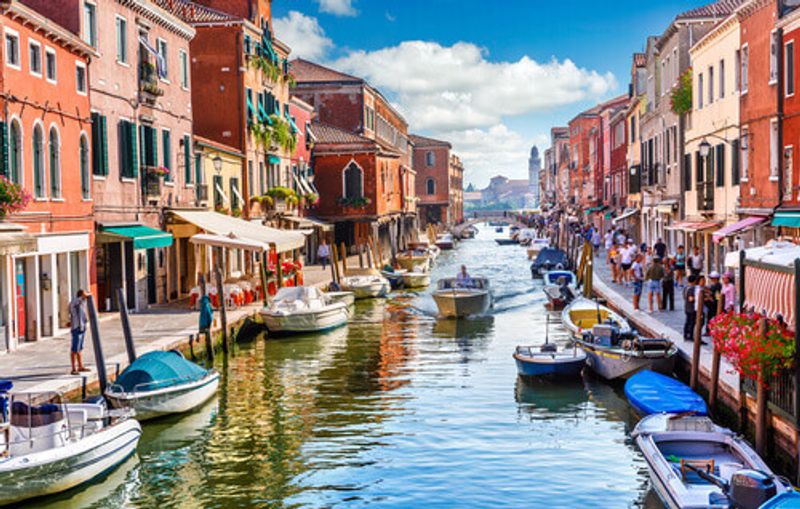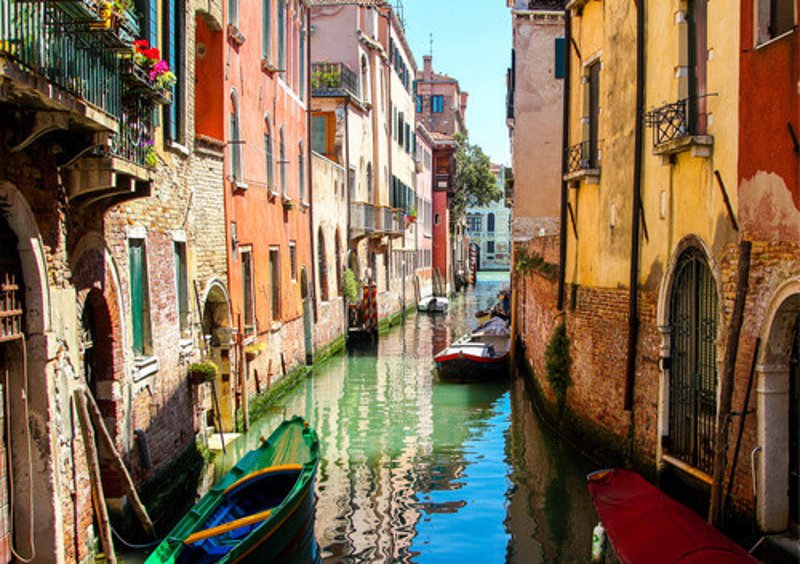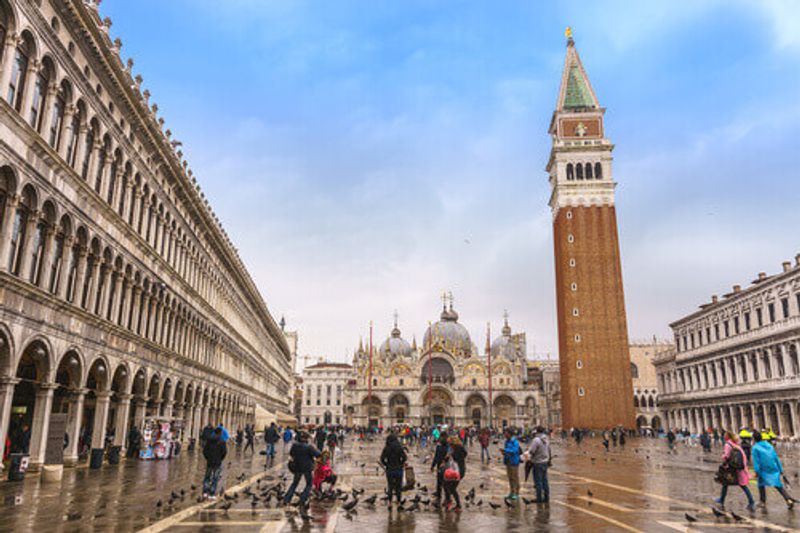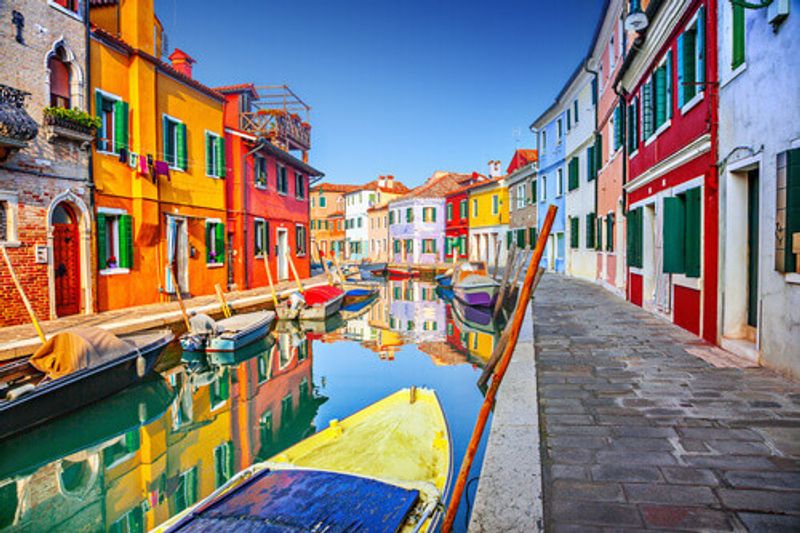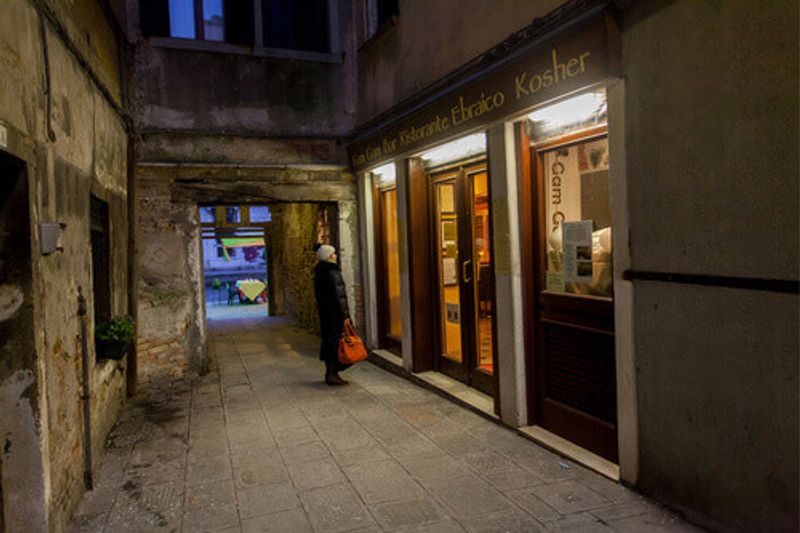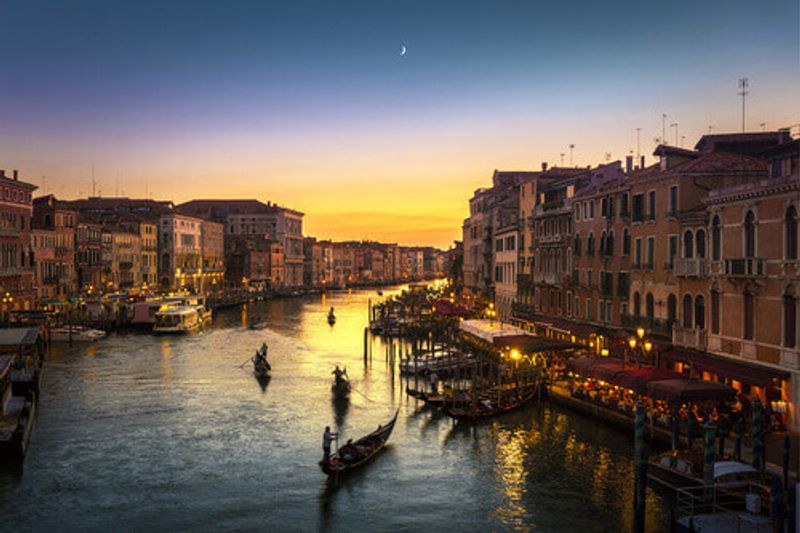Exotic, opulent and dying; Venice is an old-world masterpiece that won’t wait
Separated by water from the Italian mainland, Venice drew trade, inspiration, and sustenance from afar. Its position on the Adriatic at the European end of the Silk Road has infused its architecture, cuisine and even language with a glamorous flavour.
Despite its present day grandeur, Venice had humble beginnings. In the 5th century AD when the Roman empire fell, former territories were left vulnerable to barbarian raids. Venice’s first people fled from the mainland and sought refuge in the nearby sandy marshes. Over time, the ingenious settlers drove millions of wooden piles into the mud and built a city atop of them. Today, Venice encompasses over a hundred small islands, connected by the canals which are the lifeblood of the city.
Start your exploration in its heart with a visit to Piazza San Marco. The approach from Fermata San Marco provides a dazzling view of the Piazza; the same one enjoyed by Renaissance traders first arriving in the city. To the right stands the San Marco Basilica, dating back to 1063 and built in a uniquely-Venetian style; an opulent mix of Byzantine, Islamic and Italian influences.
The Basilica is guarded by four gilt horses, cast in antiquity and liberated from the Hippodrome of Constantinople. Inside, the Basilica is lined with thousands of gilt mosaic tiles and marble floors, flowing out into domes which support the shape of a cross. The Basilica’s museum also holds an ornate collection of carpets, liturgies and tapestries.
Balance your experience with a more earthy perspective from colourful Burano, just 45 minutes away by vaporetto (water bus). Centuries ago the mural took form as the fishermen longed to see their homes and families from afar. This romantic story is painted on the brightly coloured houses, where the locals peek out from windows topped with religious iconography. Burano is a rare opportunity to witness the Venetian rhythm of life as it was - before tourism, depopulation and the ever rising water level initiated change in the city.
Be sure to visit Campo Pescheria, the historic fish market of Burano, as well as Tre Ponti, the intersection of three bridges, which connects the most photogenic banks in the island.
Next, make your way to the original Jewish ghetto (the nomenclature was derived from the Venetian word geto). The Jewish locals were restricted to this part of the city after night fall, and marks from the gates can still be seen on the walls today.
For some delicious and unpretentious food, visit Gam Gam Kosher. Although a departure from traditional Italian cuisine, the Jewish fare is part of the broad Venetian palate. Try the vegetarian antipasto, fried artichokes and massa’bacha (eggplant and chickpea dip).
Of course, no visit to Venice is complete without a gondola ride. Gliding through the canals at sunset, the inky water is a bittersweet reminder that Venice will one day sink. Each winter, as the full moon rises and the tide swells, the city sinks a little deeper in the waters which once protected it. Happily, Venice’s vulnerability makes it all the more romantic and precious.
